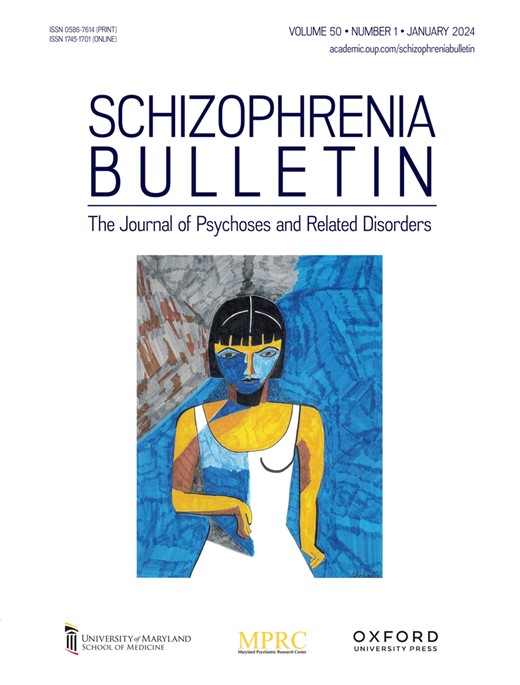Towards Enhancing Drug Development Methodology to Treat Cognitive Impairment Associated With Schizophrenia and Other Neuropsychiatric Conditions: Insights From 2 Decades of Clinical Trials
IF 4.8
1区 医学
Q1 PSYCHIATRY
引用次数: 0
Abstract
Cognitive impairment is a core feature and leading cause of functional disability in schizophrenia and other neuropsychiatric disorders. The Measurement and Treatment Research to Improve Cognition in Schizophrenia (MATRICS) initiative in the early 2000s marked a pivotal moment for drug development, establishing consensus on methodology for treatment studies, including assessment strategies and trial designs, for cognitive impairment associated with schizophrenia (CIAS). Despite extensive industry-sponsored and academic drug development efforts over the last 2 decades using these strategies no pharmacological treatments have been approved for CIAS. Drawing on pharmaceutical industry experience and scientific developments since the MATRICS initiative, we review lessons learned about the practical and operational complexities of conducting large-scale CIAS clinical trials. Based on this collective experience, we identify elements of the MATRICS guidelines that may warrant reconsideration and suggest some new approaches to streamline the drug development pathway, without weakening standards for evidence. Our goal is to initiate an open exchange among all stakeholders about possible enhancements to drug development methodology that optimize our ability to develop new treatments for cognitive impairment in schizophrenia and other neuropsychiatric disorders.加强药物开发方法治疗与精神分裂症和其他神经精神疾病相关的认知障碍:来自20年临床试验的见解
认知障碍是精神分裂症和其他神经精神疾病的核心特征和功能障碍的主要原因。21世纪初的精神分裂症认知改善测量和治疗研究(matrix)倡议标志着药物开发的关键时刻,为精神分裂症相关认知障碍(CIAS)的治疗研究方法建立了共识,包括评估策略和试验设计。尽管在过去的20年里,广泛的行业赞助和学术药物开发努力使用这些策略,但没有药物治疗被批准用于CIAS。根据matrix计划以来制药行业的经验和科学发展,我们回顾了开展大规模CIAS临床试验的实际和操作复杂性方面的经验教训。基于这一集体经验,我们确定了matrix指南中可能值得重新考虑的元素,并提出了一些新的方法来简化药物开发途径,同时不削弱证据标准。我们的目标是在所有利益相关者之间就可能增强的药物开发方法进行开放交流,以优化我们开发治疗精神分裂症和其他神经精神疾病认知障碍的新疗法的能力。
本文章由计算机程序翻译,如有差异,请以英文原文为准。
求助全文
约1分钟内获得全文
求助全文
来源期刊

Schizophrenia Bulletin
医学-精神病学
CiteScore
11.40
自引率
6.10%
发文量
163
审稿时长
4-8 weeks
期刊介绍:
Schizophrenia Bulletin seeks to review recent developments and empirically based hypotheses regarding the etiology and treatment of schizophrenia. We view the field as broad and deep, and will publish new knowledge ranging from the molecular basis to social and cultural factors. We will give new emphasis to translational reports which simultaneously highlight basic neurobiological mechanisms and clinical manifestations. Some of the Bulletin content is invited as special features or manuscripts organized as a theme by special guest editors. Most pages of the Bulletin are devoted to unsolicited manuscripts of high quality that report original data or where we can provide a special venue for a major study or workshop report. Supplement issues are sometimes provided for manuscripts reporting from a recent conference.
 求助内容:
求助内容: 应助结果提醒方式:
应助结果提醒方式:


